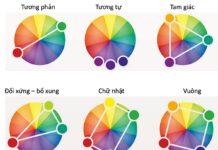Adding Excessive Sugar or Cream to Coffee
Many individuals enhance their coffee’s flavor by adding sugar, syrups, whipped cream, or sweetened condensed milk. However, these additives are high in calories, particularly from sugar and fats. A single latte or creamy coffee can contain between 200–500 calories when overloaded with extras.
Excess calories contribute to weight gain. Overconsumption of sugar increases the risk of type 2 diabetes. Saturated fats from cream or condensed milk negatively impact cardiovascular health.
Opt for black coffee without sugar or use natural sweeteners like honey in moderation. Replace heavy cream or condensed milk with unsweetened plant-based milk (e.g., almond or soy milk) or skim milk.

Drinking Coffee at Inappropriate Times
Consuming coffee immediately after waking up or too late in the evening can be detrimental. In the early morning, the body naturally produces cortisol to promote alertness, and drinking coffee during this time may diminish the hormone’s effectiveness. Conversely, evening coffee consumption can disrupt sleep patterns.
Poor sleep quality slows metabolism, leading to fat accumulation. Hormonal imbalances result in fatigue, stress, and uncontrolled eating habits.
Drink coffee between 9–11 AM when cortisol levels naturally decline. Avoid coffee after 2 PM to prevent sleep disturbances.
Excessive Daily Coffee Consumption
Consuming more than 3–4 cups of coffee daily (depending on individual tolerance) can elevate caffeine levels in the body. Excess caffeine overstimulates the nervous system, causing anxiety and increased food cravings.
Elevated cortisol levels promote abdominal fat storage. Caffeine-induced dehydration slows metabolism, contributing to weight gain. Caffeine dependency makes it challenging to regulate eating habits.
Limit intake to 1–2 cups daily (200–400 mg caffeine). Pair coffee with adequate water consumption to maintain hydration and metabolic balance.

Replacing Meals with Coffee
Some individuals substitute coffee for breakfast or snacks to reduce calorie intake. However, coffee lacks essential nutrients, leading to energy deficits and intense hunger later.
Overeating during subsequent meals due to extreme hunger. Long-term nutritional deficiencies compromise overall health. Increased stomach acid from drinking coffee on an empty stomach harms digestion.
Pair coffee with nutritious breakfast options (e.g., oatmeal, eggs, or fruit). Avoid using coffee as a meal replacement for weight loss.







































